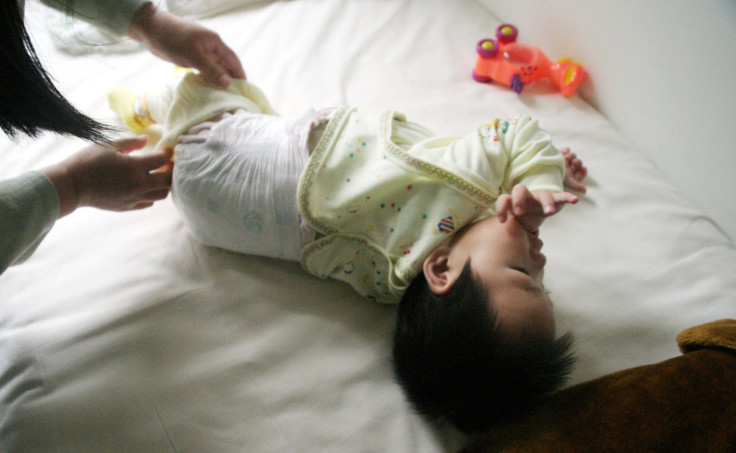Baby's Consent For Changing Diapers? Sex Education Expert Said Parents Should Ask

Deanne Carson, a sex education expert and the CEO of youth relationship service Body Safety Australia, said during a segment on ABC News that parents should ask their babies’ permission before changing diapers in order to foster a “culture of consent” in homes from the earliest, a statement that was heavily criticized by a number of people.
“We work with parents from birth...Just about how to set up a culture of consent in their homes. ‘I’m going to change your nappy now, is that OK?’ Of course a baby’s not going to respond ‘yes mum, that’s awesome I’d love to have my nappy changed'. But if you leave a space and wait for body language and wait to make eye contact then you’re letting that child know that their response matters," Carson said.
Not everyone bought into Carson’s opinion. Child behavior expert Nathalie Brown opined babies cannot give their consent for anything let alone for changing diapers because the concept of consent is too complicated for them to grasp.
“Babies don’t know what permission is and so trying to teach such a young child about consent in this situation is wrong,” she said. “If parents didn’t change their child’s nappy every time they cried or were upset then we’d have a country full of kids with soiled nappies. You have a duty of care as a parent or adult when you are looking after kids.”
“Sometimes as a parent you have to make decisions that are in the best interest of your children. Whether that is changing their nappies, feeding them or putting them to sleep, there are some things that just have to be done despite the child’s reaction. Babies are yet to develop their full emotion and understanding so it’s impossible for them to communicate accurately and effectively,” Brown said, News reported.
Carson’s comments were also mocked by Rowan Dean, editor of “The Spectator Australia” magazine on Australian news channel Sky News, where he branded it “lefty lunacy.”
After receiving backlash from critics, Carson took to Facebook to defend her comments.
“Sadly, some people have chosen to ridicule me (oh no! Pink hair! Must be a lesbian!) and the notion of giving infants bodily autonomy (poo in nappies har har amiright?!)
For those people I’m posting this.
One in three girls, one in seven boys will be sexually assaulted by the time they are eighteen years old. One in twelve girls will be sexually abused before their sixth birthday.
The work we do with children, teachers and parents is international best practice in abuse prevention. It teaches children their rights AND their responsibilities and connects them with people who care and can help. It invites their parents into the discussion and is sensitive to cultural and family values.
Troll me all you want, add to your blog inches, but remember that when you do, you are negating the voices of these brave survivors of sexual abuse."
In a statement to Newsweek, Katie Russell, a spokesperson for the non-profit sexual violence organization Rape Crisis England and Wales, said people might have misunderstood the suggestion behind Carson's overall message.
"She's simply making the very reasonable case for establishing a 'culture of consent' in households and with children from the youngest possible age," she said. "This is about both getting parents and carers into positive habits of not assuming consent from their children and about teaching children that they have a right to decide what happens to their bodies."
"When we know child sexual abuse is so widespread, it's hard to understand why simple, respectful practices like this, aimed at reducing and preventing future harm to children, would be so ridiculed,” she added.
© Copyright IBTimes 2024. All rights reserved.






















